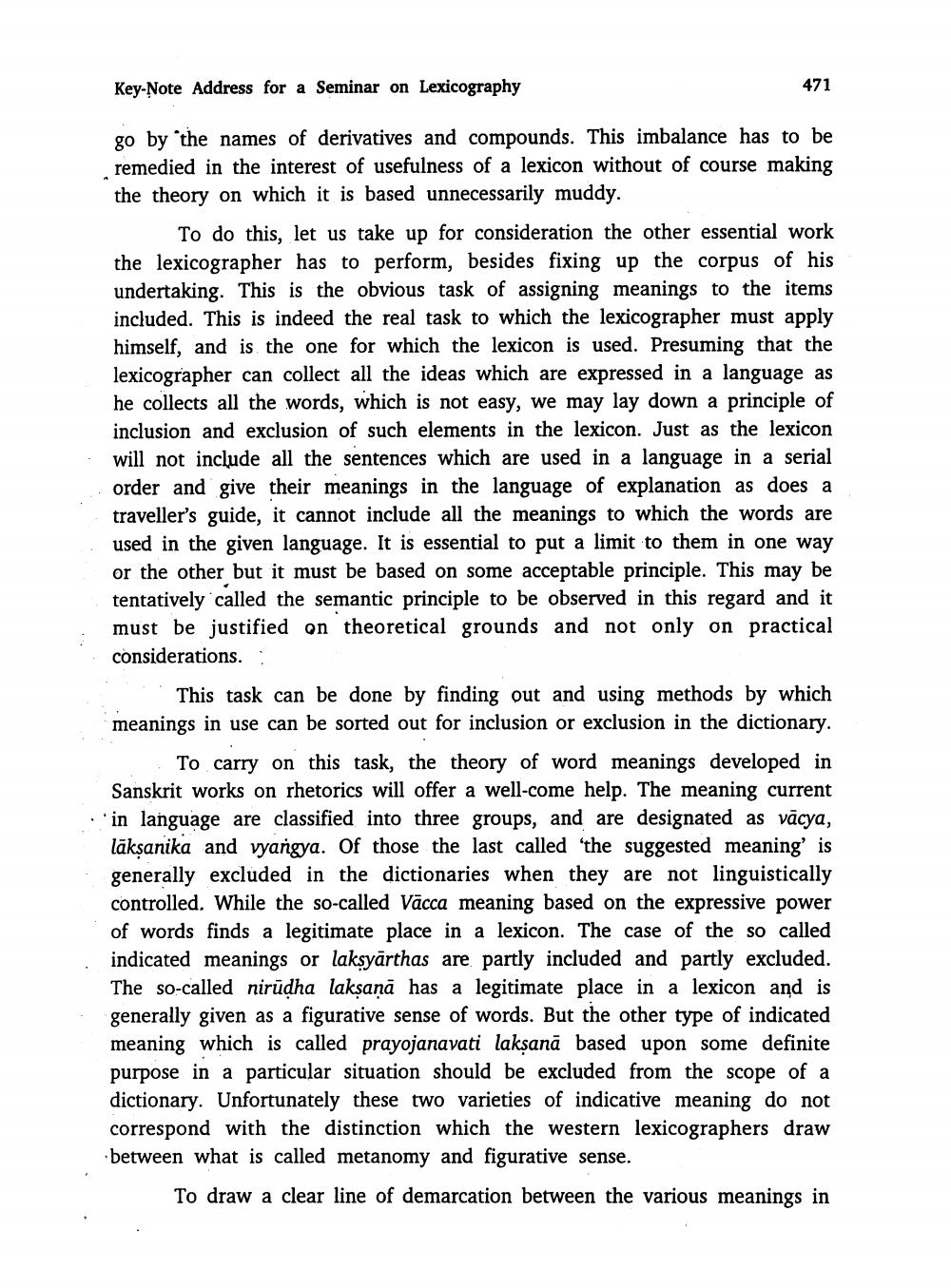________________
Key-Note Address for a Seminar on Lexicography
471
go by the names of derivatives and compounds. This imbalance has to be remedied in the interest of usefulness of a lexicon without of course making the theory on which it is based unnecessarily muddy.
To do this, let us take up for consideration the other essential work the lexicographer has to perform, besides fixing up the corpus of his undertaking. This is the obvious task of assigning meanings to the items included. This is indeed the real task to which the lexicographer must apply himself, and is the one for which the lexicon is used. Presuming that the lexicographer can collect all the ideas which are expressed in a language as he collects all the words, which is not easy, we may lay down a principle of inclusion and exclusion of such elements in the lexicon. Just as the lexicon will not include all the sentences which are used in a language in a serial order and give their meanings in the language of explanation as does a traveller's guide, it cannot include all the meanings to which the words are used in the given language. It is essential to put a limit to them in one way or the other but it must be based on some acceptable principle. This may be tentatively called the semantic principle to be observed in this regard and it must be justified on theoretical grounds and not only on practical considerations.:
This task can be done by finding out and using methods by which meanings in use can be sorted out for inclusion or exclusion in the dictionary.
To carry on this task, the theory of word meanings developed in Sanskrit works on rhetorics will offer a well-come help. The meaning current 'in language are classified into three groups, and are designated as vācya, lākṣanika and vyangya. Of those the last called 'the suggested meaning is generally excluded in the dictionaries when they are not linguistically controlled. While the so-called Vācca meaning based on the expressive power of words finds a legitimate place in a lexicon. The case of the so called indicated meanings or laksyārthas are partly included and partly excluded. The so-called nirudha lakṣaņā has a legitimate place in a lexicon and is generally given as a figurative sense of words. But the other type of indicated meaning which is called prayojanavati laksanā based upon some definite purpose in a particular situation should be excluded from the scope of a dictionary. Unfortunately these two varieties of indicative meaning do not correspond with the distinction which the western lexicographers draw between what is called metanomy and figurative sense.
To draw a clear line of demarcation between the various meanings in




